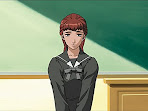Kate: Shushou’s experience in The Wings of Dreams reminds me of Merlin training Arthur in T.H. White’s The Sword in the Stone. Merlin turns Arthur into multiple animals to train him in different forms of governance. Likewise, Shushou experiences different types of leadership on the Shouzen. She comes to appreciate the effectiveness as well as flaws of different approaches.
Is the trope here common in Japanese fantasy? The idea that training entails not just discipline but various types of exposure?
Eugene: The training trope arises out of religious ascetic practices. Hills of Silver Ruins describes the rigors of these training regimens in considerable depth, including their connection to pilgrimages (see chapters 25 and 26 of book 3).
Although strongly associated with Zen, these ascetic practices were formalized during the Heian period by a syncretic sect known as Shugendo. Especially in the martial arts/wuxia genre, the training trope in Japanese fantasy closely tracks Shugendo rituals.
The "waterfall exercise" (滝行) depicted in the sidebar of the Wikipedia article has become the stereotypical Shugendo ritual. (Do an image search on those kanji for many examples.)
Kate: Youko begins Shadow of the Moon desperately wanting to be a good girl who gains approval by not making waves. Rather like Buffy, she is the innocent young woman who inherits a difficult position, not entirely desired (I just want to be a normal girl!). How do the Japanese react to Buffy?
Eugene: Buffy reflects the archetype but I'd call this more an example of convergent evolution. Alas, the best I can tell, only two seasons of the DVD are available in Japan and they're out of print.
Yet there are important distinctions. In the rom-com genre, even with fantasy elements, it is common for one or both of the protagonists to have already reached the top of the high school pecking order (academically too). Yuki in Fruits Basket and Miyuki in Kaguya-sama are student council presidents.
 When it comes to fighting demons (Beyond the Boundary)
or solving mysteries (Hyouka), the Scooby Gang typically hangs out in
their own clubroom away from everybody else. Hiyori in Noragami doesn't
appear to give her social life a moment's thought. Being "popular"
isn't on the agenda.
When it comes to fighting demons (Beyond the Boundary)
or solving mysteries (Hyouka), the Scooby Gang typically hangs out in
their own clubroom away from everybody else. Hiyori in Noragami doesn't
appear to give her social life a moment's thought. Being "popular"
isn't on the agenda.
Just as common are antisocial characters like Hachiman (a young Gregory House) and Yukino in My Teen Romantic Comedy SNAFU who only interact with their fellow students after considerably arm-twisting.



No comments:
Post a Comment